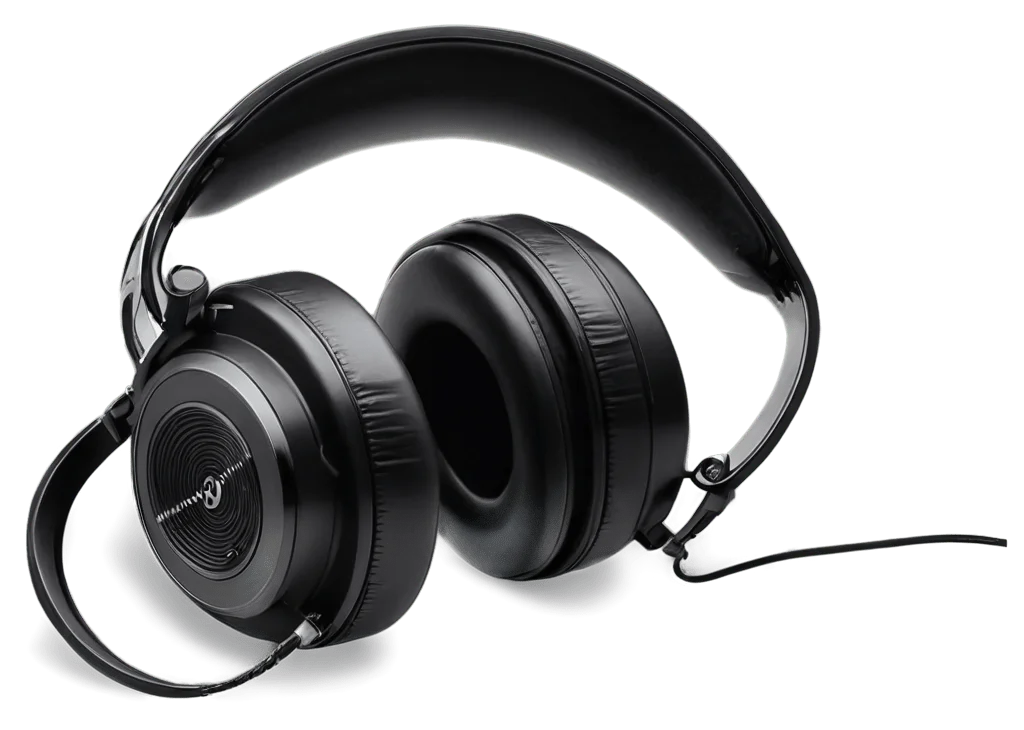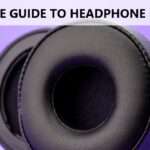Studio headphones for classical music offer exceptional sound clarity and accurate audio reproduction. They deliver balanced frequencies, essential for appreciating intricate details.
Classical music demands precision, and high-quality studio headphones are crucial for an immersive experience. They provide a flat frequency response, ensuring that every note, instrument, and nuance is faithfully reproduced.
This accuracy helps listeners to appreciate the subtle dynamics and rich textures inherent in classical compositions.
Comfort is also important, as classical pieces can be lengthy. Well-padded, over-ear designs help reduce fatigue during extended listening sessions. Durability and build quality are other key considerations, ensuring the headphones withstand regular use.
Investing in the right studio headphones enhances the enjoyment and understanding of classical music, making each listening session a true auditory delight.
The Quest For Pure Harmony
Classical music is a world of intricate melodies and harmonies. It requires precise listening to appreciate its beauty fully. Studio headphones can offer that clarity. They transport you into the heart of the music, revealing every detail.
Why Classical Music Demands Quality
Classical music has a broad dynamic range. It goes from whispers to powerful crescendos. Ordinary headphones may miss these subtleties. High-quality studio headphones capture every nuance. They allow you to hear every instrument and note.
Classical music also features complex arrangements. Each instrument plays a crucial role. Poor-quality headphones can blend these sounds. This makes it hard to hear individual instruments. High-quality headphones separate these sounds. This creates a clearer and more enjoyable experience.
Finding The Right Tools For Listening
Choosing the right headphones is important, especially for enjoying classical music. Here are some key features to consider:
- Frequency Response: Look for a wide range to capture high and low notes accurately.
- Comfort: Long listening sessions require comfortable headphones. Padded ear cups and adjustable headbands are essential.
- Build Quality: Durable materials like metal frames and high-quality plastic ensure longevity.
- Noise Isolation: This feature helps block out external noise, allowing you to focus on the music.
Here’s a comparison table of top studio headphones for classical music in 2024:
| Model | Frequency Response | Comfort | Build Quality | Noise Isolation |
| Sennheiser HD600 | 12Hz – 40kHz | High | Metal frame | Limited |
| Beyerdynamic DT 880 Pro | 5Hz – 35kHz | High | Metal frame | Moderate |
| AKG K702 | 10Hz – 39.8kHz | High | Metal frame | None |
| Shure SRH1840 | 10Hz – 30kHz | High | Aluminum frame | None |
| Philips SHP9500 | 12Hz – 35kHz | High | Plastic/Metal | Limited |
Picking the right headphones enhances your classical music experience, allowing you to hear the music as the composer intended.

Credit: m.aliexpress.com
Key Features Of Studio Headphones For Classical Music
Studio headphones for classical music need specific features. These features ensure a rich, immersive listening experience. Below are the key features to consider.
Sound Signature Essentials
Classical music has a wide range of instruments. Studio headphones need to handle this variety. They should offer a balanced sound signature. This means clear highs, rich mids, and deep lows.
The soundstage is important too. A wide soundstage helps you hear each instrument. Look for headphones that offer this feature.
| Feature | Description |
|---|---|
| Frequency Range | 20Hz to 20kHz for full-range sound |
| Impedance | 32 ohms or higher for better sound quality |
| Driver Size | 40mm or larger for detailed sound |
Comfort For Long Listening Sessions
Comfort is key when listening to classical music. You may listen for hours. Studio headphones should have soft, padded ear cups. Adjustable headbands are also important. They ensure a good fit.
Lightweight design helps too. Heavy headphones can cause discomfort. Look for headphones that weigh less than 300 grams.
- Soft, padded ear cups
- Adjustable headbands
- Lightweight design
Top Picks For Classical Music Aficionados
Classical music lovers know the importance of sound quality. Studio headphones enhance the listening experience. Here are the top picks for classical music aficionados, with updated prices and features for 2024.
Budget-friendly Options
Not everyone wants to spend a lot on headphones. Here are some affordable choices without compromising quality.
● Audio-Technica ATH-M50x
- Price: $169
- Excellent sound clarity
- Comfortable for long sessions
- Durable build
● AKG K240 Studio
- Price: $79
- Semi-open design
- Accurate sound reproduction
- Lightweight and comfortable for long use
● Sony MDR-7506
- Price: $89
- Great noise isolation
- Durable build
- Ideal for studio monitoring
High-end Choices For The Audiophile
For those who demand the best, high-end headphones offer superior quality. These options provide an exceptional experience.
● Sennheiser HD 800 S
- Price: $1,799
- Wide soundstage
- Unmatched detail
- Premium build quality
● Beyerdynamic DT 1990 Pro
- Price: $649
- Open-back design
- Excellent treble and bass
- Robust build
● Focal Utopia
- Price: $3,999
- Pure beryllium drivers
- Unparalleled sound quality
- High fidelity and luxurious design
These headphones provide an excellent range of options, from budget-friendly to high-end, ensuring that classical music enthusiasts can find the perfect pair to enhance their listening experience.

Credit: www.amazon.com
Understanding Soundstage And Imaging
Soundstage and imaging play a crucial role in enjoying classical music. These elements help listeners feel as if they are in a concert hall. A wide soundstage and accurate imaging bring the true essence of classical music.
The Importance In Classical Music
Classical music features complex arrangements and varied instrument placement. Soundstage refers to the perceived space and depth of the audio. It allows you to hear where each instrument is located.
Imaging is the accuracy of the sound placement. It helps in identifying the exact position of each instrument. Together, these elements create a rich and immersive listening experience.
| Aspect | Benefit |
|---|---|
| Soundstage | Creates a sense of space and depth |
| Imaging | Provides accurate positioning of instruments |
Headphones That Shine In This Aspect
- Sennheiser HD 800 S Known for its wide soundstage and precise imaging. Perfect for classical music lovers.
- Beyerdynamic DT 1990 Pro Offers excellent imaging and a balanced soundstage. Ideal for detailed classical music tracks.
- Audio-Technica ATH-R70x Provides a natural soundstage and clear imaging. Great for an immersive experience.
Choosing the right headphones enhances the listening experience. Opt for headphones with excellent soundstage and imaging for classical music.
The Role Of Open Vs Closed-back Headphones
Choosing the right studio headphones can significantly impact your listening experience. For classical music enthusiasts, the decision between open-back and closed-back headphones is crucial. Each type has its unique features and benefits. Understanding these differences will help you make an informed choice.
Benefits Of Each Type
Open-Back Headphones
Open-back headphones have a design that allows air and sound to pass through the ear cups. This design offers several benefits:
- Natural Sound Quality: The open design provides a more natural sound. It mimics the experience of listening to live music.
- Better Soundstage: Open-back headphones offer a wider soundstage. This means you can hear the precise location of each instrument.
- Comfortable for Long Sessions: These headphones are usually lighter. They are comfortable for extended listening sessions.
Closed-Back Headphones
Closed-back headphones have a sealed design that prevents sound leakage. This design also has its benefits:
- Isolation: The closed design blocks external noises. This allows you to focus on your music without distractions.
- Enhanced Bass: Closed-back headphones often produce better bass response. This can add depth to your music.
- Privacy: These headphones prevent sound from leaking out. This is ideal for studio recordings where privacy is crucial.
What’s Best For Classical Music?
Classical music demands clarity, precision, and a wide soundstage. Let’s compare open-back and closed-back headphones for this genre:
| Feature | Open-Back Headphones | Closed-Back Headphones |
|---|---|---|
| Sound Quality | Natural, airy sound | Rich, bass-heavy sound |
| Soundstage | Wide and expansive | Narrower, more focused |
| Noise Isolation | Less isolation | Excellent isolation |
| Comfort | Lightweight, breathable | Heavier, more isolating |
For classical music, open-back headphones often provide a more immersive experience. They offer a natural sound and a wider soundstage. This makes them ideal for appreciating the nuances of classical compositions. Yet, if isolation is vital, closed-back headphones still have their place.
Caring For Your Studio Headphones
- Ear pads.
- Store them properly: Use a hard case to prevent damage.
- Avoid moisture: Keep headphones away from liquids.
- Check cables: Inspect cables for wear and tear.
- Replace parts: Replace worn-out ear pads and cables.
Extending The Life Of Your Gear
To extend the life of your headphones, consider these practices:
| Action | Benefit |
|---|---|
| Use a headphone stand | Prevents bending and damage |
| Avoid high volumes | Protects internal components |
| Unplug carefully | Prevents cable damage |
| Keep away from pets | Avoids chew marks and dirt |
Taking these steps ensures your headphones last longer and perform better. Treat your gear with care and enjoy quality sound for years.
Connecting With The Classics: Setup Tips
Studio headphones can bring classical music to life. They offer precision and clarity. Setting up your headphones correctly is crucial. Follow these tips to connect with the classics.
Optimizing Your Listening Environment
Your listening environment should be quiet. Background noise disrupts the experience. Use heavy curtains or rugs to absorb sound. Arrange your furniture to minimize echoes. A clutter-free space can also help.
Keep your listening space free of distractions. Turn off any noisy devices. Ensure your chair is comfortable for long listening sessions. Proper lighting can also improve your focus on the music.
Recommended Accessories
Several accessories can enhance your classical music experience. Here are some recommendations:
- High-Quality DAC (Digital-to-Analog Converter): Improves the sound quality.
- Headphone Amplifier: Provides the power needed for high-impedance headphones.
- Headphone Stand: Keeps your headphones safe and organized.
- Balanced Cables: Reduces interference and improves clarity.
These accessories ensure a richer and more immersive experience. Investing in them can make a significant difference. Below is a table summarizing the recommended accessories:
| Accessory | Benefit |
|---|---|
| High-Quality DAC | Improves sound quality |
| Headphone Amplifier | Provides necessary power |
| Headphone Stand | Keeps headphones safe |
| Balanced Cables | Reduces interference |
These accessories are essential for any classical music lover. They elevate the listening experience to new heights.
Real-world Reviews And Testimonials
Studio headphones for classical music offer a rich, immersive experience. How do they perform in real-world settings? Read on to see what users say. Discover how these headphones affect their music journey.
From Beginners To Professional Musicians
Both beginners and professionals have shared their experiences. Let’s explore how different users feel about their studio headphones.
| User Type | Experience |
|---|---|
| Beginner | The sound quality helps learn the nuances. |
| Intermediate | They notice clearer sound details. |
| Professional | The headphones offer accurate sound reproduction. |
How The Right Headphones Changed Their Experience
Many users say the right headphones make a big difference. Here are some personal stories:
- Emma, a beginner: “The headphones help me hear every instrument.”
- John, an intermediate musician: “I can distinguish between different instruments better.”
- Sarah, a professional: “They provide an authentic listening experience.”
Choosing the right headphones can transform your musical journey. Both beginners and professionals benefit greatly. Hear what real users say and find your perfect pair today.
Frequently Asked Questions
What Are The Best Studio Headphones For Classical Music?
The best studio headphones for classical music offer high fidelity and clarity. Look for models with a flat frequency response and open-back design. Brands like Sennheiser, Beyerdynamic, and AKG are highly recommended.
Why Choose Open-back Headphones For Classical Music?
Open-back headphones provide a more natural and spacious sound. They allow air and sound to pass through, reducing resonance and enhancing the listening experience, especially for classical music.
Are Noise-cancelling Headphones Good For Classical Music?
Noise-cancelling headphones are not ideal for classical music. They can alter the sound quality and introduce unwanted artifacts. For critical listening, choose high-quality, non-noise-cancelling studio headphones.
What Features Matter In Studio Headphones For Classical Music?
Key features include flat frequency response, comfort, and build quality. Look for headphones with large drivers and an open-back design for the best soundstage and detail.
Conclusion
Choosing the right studio headphones enhances your classical music experience. Prioritize sound quality, comfort, and durability. Investing in premium headphones ensures clear, detailed audio. Enjoy your favorite symphonies with superior sound.
Find the perfect pair and elevate your listening experience today.

A passionate tech blogger and the founder of Best Tech View, a dynamic platform dedicated to all things technology. With a keen interest in the tech, Ahmad strives to provide insightful and engaging content on the latest tech trends, and breakthroughs.


